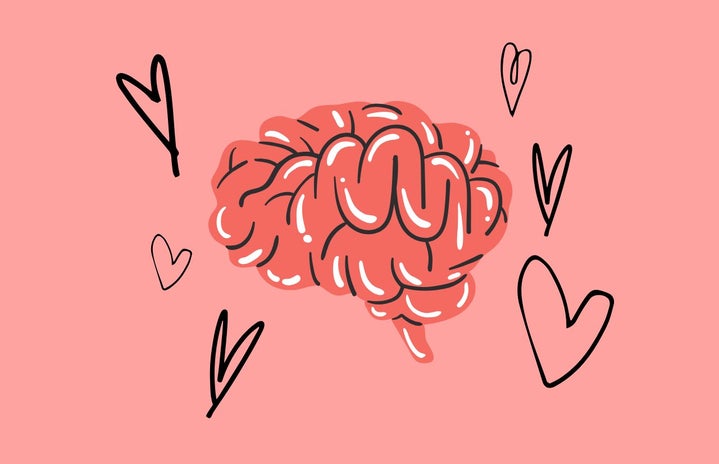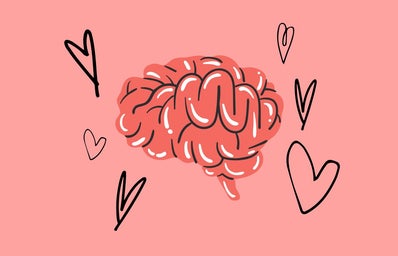In the past months, amidst Covid-19 and getting ready for one of the most socially dividing elections in America history, mental health has been a buzz-worthy topic. Mental wellness has been on the decline since the beginning of the pandemic. The Kaiser Family foundation, a non-profit that provides non-partisan facts on national health issues, published “nearly half (45%) of adults in the United States reported that their mental health has been negatively impacted due to worry and stress over the virus,” (Panchal, Kamal 2020). In these trying times, it is important that, as a country, we look out for the mental well being of those around us. Here are five steps to being a better ally for those who are struggling within your community.
STEP 1: Be an Advocate
Do research on your school’s or workplace’s policies on mental health.
Ask yourself:
Is this policy fair?
Would this policy make sense for someone who was physically ill?
Does this policy apply equally to all demographics?
If your answer is anything but a confident, “Yes!” to any of those questions, email your school board or boss with your query. Be kind, concise, and voice your concerns with pride. Remember, you just want the rules to be fair and your demand is not radical. Hold your ground and back yourself up with facts and personal testimonials.
Educate yourself on how mental illness affects your country or state. What percentage of homeless people are mentally ill? How are veterans affected by mental illness? What is the teen suicide rate in your county? Make yourself aware of these facts to better face the world and understand public policy surrounding mental illness.
STEP 2: Monitor Your Media Consumption
Popular media has villainized and romanticized mental illness for years. One of the most famous shows to do so, ‘Thirteen Reasons Why’, received incredible backlash from psychologists. Agnes K. Costello, a psychologist with Northwestern Medicine said, “…this type of show validates the faulty, fatalistic thinking that mental health professionals try to move teens away from,” in response to the show (Costello, 2020). In other words, these shows glamorize suicide and make it easier for at risk teenagers to make plans to attempt suicide. Even if you are not at risk of suicide, it’s important to limit your consumption of media that incorrectly depicts mental illness to curb yourself from learning these harmful biases and to send a message to the producers.
STEP 3: Listen
When a friend comes to you with a crisis, listen first. People are often seeking validation and they just need to be heard. Immediately trying to solve the problem or correcting your friend’s personal choices can feel dismissive and your friend might think you don’t care. Hear their feelings and allow them to vent. You can help them fix it once they are more calm and able to think about solutions. Use active listening techniques such as open ended questions, encouraging verbal and nonverbal cues, and open body language. Read more about active listening here.
STEP 4: Be Aware of Your Choice of Language
Let’s talk about microaggressions. A microaggression is, “a statement, action, or incident regarded as an instance of indirect, subtle, or unintentional discrimination against members of a marginalized group,” as defined by Oxford Languages (Oxford DIctionaries, 2020). Although they’re commonly talked about in relation to ethnic or racial groups, microaggressions against the mentally ill are very common in the public’s colloquial. You might have said, “my test is giving me anxiety,” or “I need my apartment to be clean because I’m so OCD.” Those sentences are both examples of unfairly using a mental illness to achieve hyperbole. This can be damaging to people with a mental illness because it undermines their reality. It is never okay to take someone’s disease and reduce it to a superfluous trope. People with depression don’t choose to feel sad and their feelings of hopelessness can be completely unrelated to the world around them. According to the National Institute of Mental Health, “Nearly one in five U.S. adults live with a mental illness,” (NIMH, 2019). Basically, it is overwhelmingly likely that you know at least one person with a mental illness. So be careful what you say: you don’t know who you’re hurting.
STEP 5: Donate
This last step is optional. If you are moved and want to take an extra step to help those who are struggling with a mental illness, you can donate your time or money.
Some organizations you can financially support:
Mental Health America – A nationwide authority on mental health advocacy by addressing the needs of people living with mental illness.
National Institute of Mental Health – The leading federal agency for mental health research.
American Foundation for Suicide Prevention – Provides funding for research, educational programs, advocacy initiatives, and resources for those with or affected by mental illness.
If you aren’t able to give monetarily, you can also donate your time.
You can volunteer at:
Crisis Text Line – Become a crisis counselor and help texters from around the country to navigate crises.
National Institute of Mental Health – NAMI holds fundraising events across the country. Participate in a walk, fundraiser, or make your own fundraising event.
Call your local treatment facility or hospital. These clinics are often understaffed and could use your help. If you want to gain experience in the medical field, this is a great opportunity!
With every passing generation, we become more open and accepting to all kinds of people. Each person who changes their position on mental illness makes the world a safer place for the mentally ill and disabled. As an ally, you have an important role to play. You provide support, love, and kindness to those in great need of it. Continue to actively criticize your internalized biases against mental illness and take care of your fellow human beings.
If you are in need of immediate crisis help, text HOME to 741741 to talk with a free crisis counselor.
Citations
“Mental Illness.” National Institute of Mental Health, U.S. Department of Health and Human Services, Feb. 2019, www.nimh.nih.gov/health/statistics/mental-illness.shtml.
“Microaggression: Definition of Microaggression by Oxford Dictionary on Lexico.com Also Meaning of Microaggression.” Lexico Dictionaries | English, Lexico Dictionaries, 2020, www.lexico.com/en/definition/microaggression.
Nirmita Panchal, Rabah Kamal, and Apr 2020. “The Implications of COVID-19 for Mental Health and Substance Use.” KFF, 21 Apr. 2020, www.kff.org/coronavirus-covid-19/issue-brief/the-implications-of-covid-1….
Costello, Agnes K. “What TV Gets Wrong About Mental Illness.” Northwestern Medicine, 2020, www.nm.org/healthbeat/healthy-tips/emotional-health/what-tv-gets-wrong-a…


